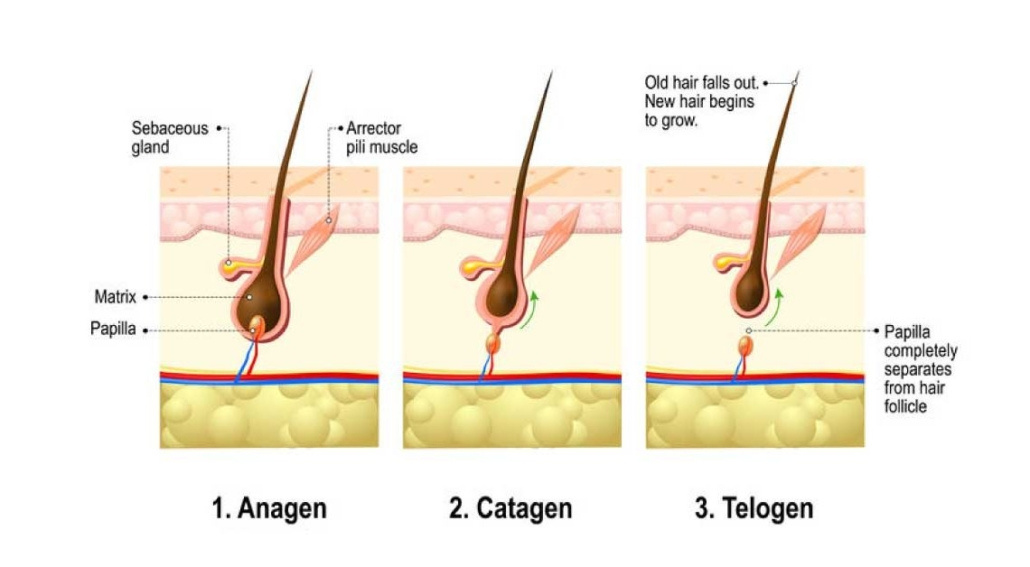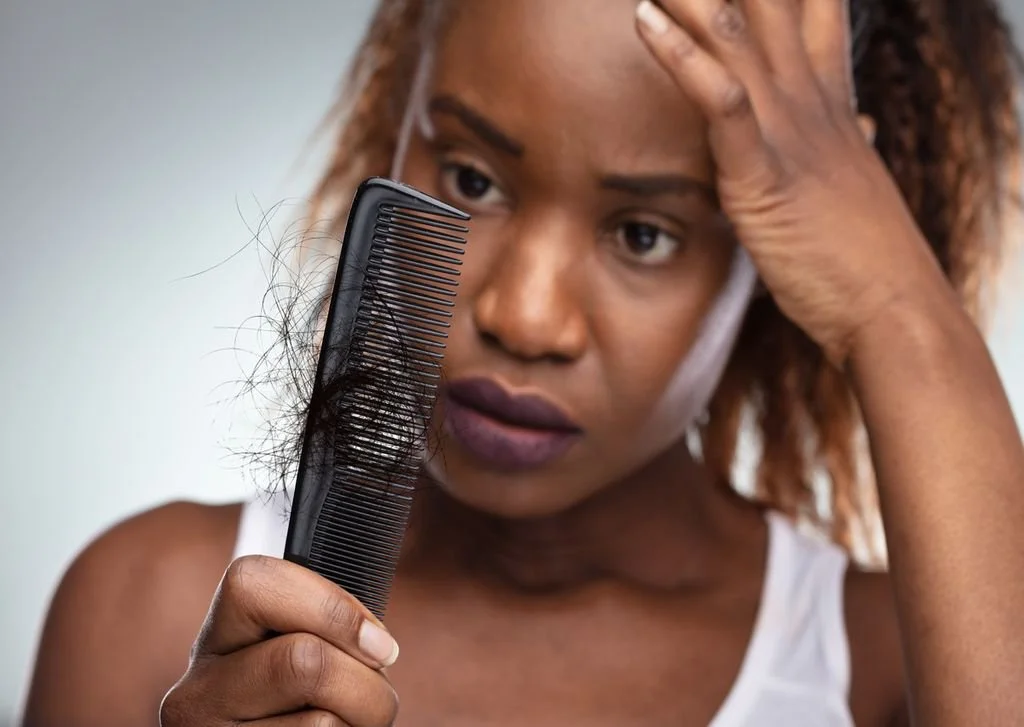Childbirth may bring the joy of motherhood, but it's no child's play when it comes to one unexpected aftermath - postpartum hair loss!
As if navigating the challenges of new motherhood isn't enough, many women also have to deal with postpartum hair loss. But look, I recently learnt that some women temporarily lose their vision in pregnancy! I know! That really puts things in perspective, right? I am not trying to minimise the shock and horror of hair loss so let’s dive into the hairy truths of postpartum hair loss and how to manage it with grace and style!
What is postpartum hair loss?
Postpartum hair loss is a temporary hair loss condition that affects many women after giving birth. It occurs when the normal hair growth cycle is disrupted due to hormonal changes during pregnancy and childbirth.
Typically, your hair grows in three phases: the anagen phase (the growth phase), the catagen phase (the transitional phase), and the telogen phase (the resting phase). During pregnancy, the increased levels of estrogen in the body can cause hair to remain in the anagen phase longer, resulting in thicker, fuller hair.
However, after giving birth, estrogen levels drop dramatically, causing hair to move more quickly into the telogen phase, where it will eventually fall out. This is what results in significant hair shedding, which can be particularly alarming for new mothers.
Of course, it is normal to have fears or concerns related to this condition, no matter how common it is, but in most cases, hair loss is temporary and will resolve on its own over time. So, stay calm.
Although the hair loss is temporary, it may still have a negative impact on your self-esteem, particularly if it affects your edges more than being evenly dispersed!
Now I see many people on Instagram and Youtube selling pipe dreams to address Postpartum hair loss. Most of these things are rubbish and nonsense. Your hormones will adjust with time, usually 6 -9 months but it may be a little longer for some. If your hair isn’t bouncing back after 9-12 months and your hair care regimen is on point and on lock, then it's time to see someone!
Here are some tips I share with my clients for processing & managing postpartum hair loss. There is no silver bullet but all these tips will really really help!
-Be patient with yourself: It's important to remember that postpartum hair loss is a temporary condition that will resolve on its own over time. Be patient with yourself and your hair as it goes through this phase. Avoid stressing over the amount of hair you are shedding and focus on maintaining a healthy scalp and hair care routine.
-Focus on your nutrition: The quality of your food has a direct impact on the quality of your hair. The quality of your food can also help to balance your hormones. So, focus on eating a balanced meal rich in protein, vegetables and fruits. Pay particular attention to increasing your protein intake, I promise you it yields dividends! If your doctor gives you the ok to, I’d personally add our Vitamin D3 and Magnesium.
-Seek support: Talking to other women who have experienced postpartum hair loss can be helpful in processing your emotions and concerns. Joining online forums or support groups specifically for mothers can also provide a safe space for sharing experiences, tips, and coping strategies.
-Embrace low-manipulation protective styling: Low manipulation hairstyles, such as twists or cornrows can be a practical solution for managing postpartum hair loss. These hairstyles can help protect your hair from exacerbating the hair loss.
-Adjust your hair care routine: Now is not the time for tight braids or excessive hair styling! Avoid any hairstyle that can pull on your hair shafts, this prevents further damage to your already weakened hair. Opt for gentle hair care products and consider using superior conditioning and strengthening treatments to enhance hair quality.
Our hair mist and leave-in conditioner deliver on great hydration and conditioning! Our hair oils are also suitable for hot oil treatments which are extremely beneficial in restoring your hair’s strength.
-Prioritize self-care: Taking care of yourself emotionally and physically is crucial during this time. Make sure to practice self-care, get enough rest, get enough sleep, we know sleep is difficult with a newborn but please try, and manage stress.
-Exercise - We know that exercise reduces stress and promotes hair growth by improving blood flow, so get out and walk - and we say walk because most people without any impediment can walk! Walking is such an effective exercise, we are always surprised that many don’t partake.
In conclusion, postpartum hair loss can be a challenging experience for all women, but with the right knowledge, support, and self-care, it can be well-managed and your hair will bounce back in no time!




